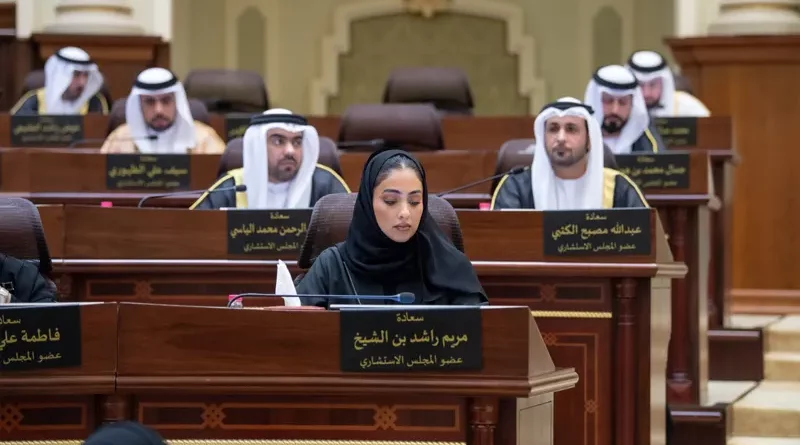SCC approves its SIH policy recommendations
SHARJAH: The Sharjah Consultative Council (SCC) approved its recommendations regarding the policy of the Sharjah Institute for Heritage (SIH), during its tenth session, held at its headquarters in the city of Sharjah.
Ali Mehd Al Suwaidi, Chairman of the Sharjah Consultative Council (SCC), chaired the session.
The council’s work began with the ratification of the minutes of the ninth session, after which the council discussed its recommendations regarding the policy of the SIH.
The council through its draft recommendations, which it approved, called for providing the SIH’s heritage publications with books and stories for the blind using Braille, reaching students at various educational stages, and marketing them to ensure benefit from their valuable content.
The council called for paying attention to the profession of craftsmen and working to ensure that it does not disappear by creating a database and platform concerned with preparing a professional charter for craftsmen to grant licences to practice crafts to ensure its continuity and sustainability.
The recommendations also emphasised the importance of graduating national cadres that contribute to preserving the local heritage by offering bachelor’s and master’s programmes.
The recommendations also called for preventing the introduction of musical instruments into Al Razfa, as these musical instruments deviate from the traditional folk art, in addition to calling for the development of some electronic services by taking advantage of modern technology, such as virtual reality and others, and educating the new generation to learn about the ancient heritage.
The recommendations stressed the need to work on continuing to document oral narratives, record oral history, and work on collecting all narrative memories of events and places, and archiving them to preserve heritage.
The recommendation also highlighted the necessity of preparing the second row of leaders in the SIH.
The recommendations stressed organising specialised programmes for young people, with the aim of practicing and mastering traditional arts, in coordination with the competent authorities.
The recommendations highlighted the importance of integration with the educational field through its institutions and the Supreme Council for Family Affairs to involve the family in the work of the SIH and the efforts exerted to preserve and enhance cultural heritage for new generations, stressing in the same context the importance of organising educational activities with various elements of heritage for students and members of society.
At the conclusion of the discussions, the members approved their recommendations regarding discussing the policy of the SIH.

